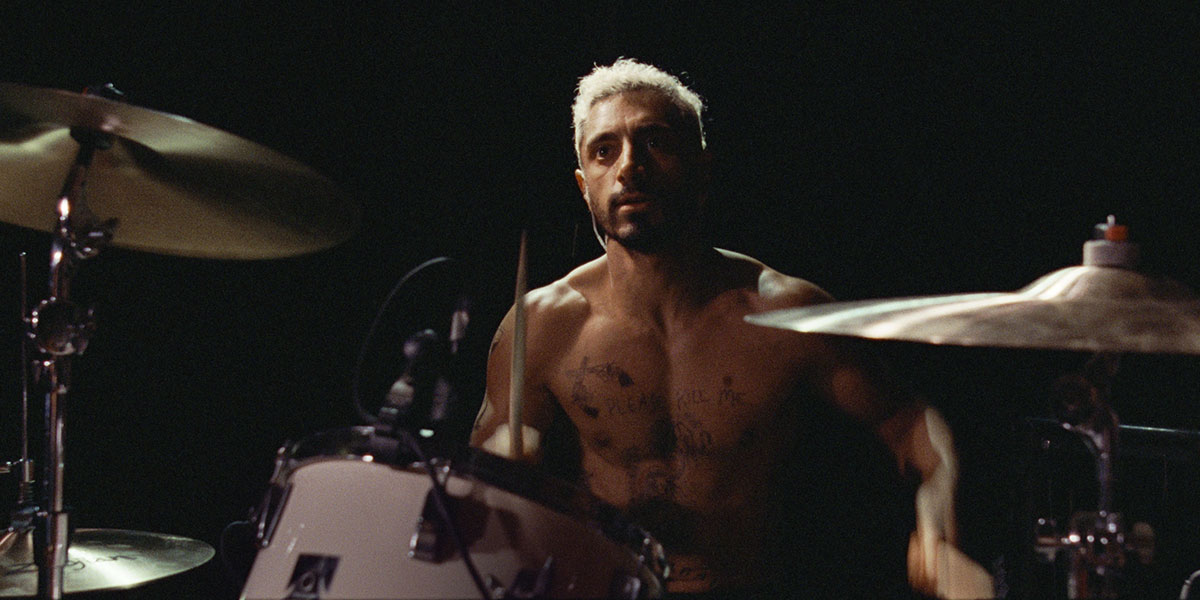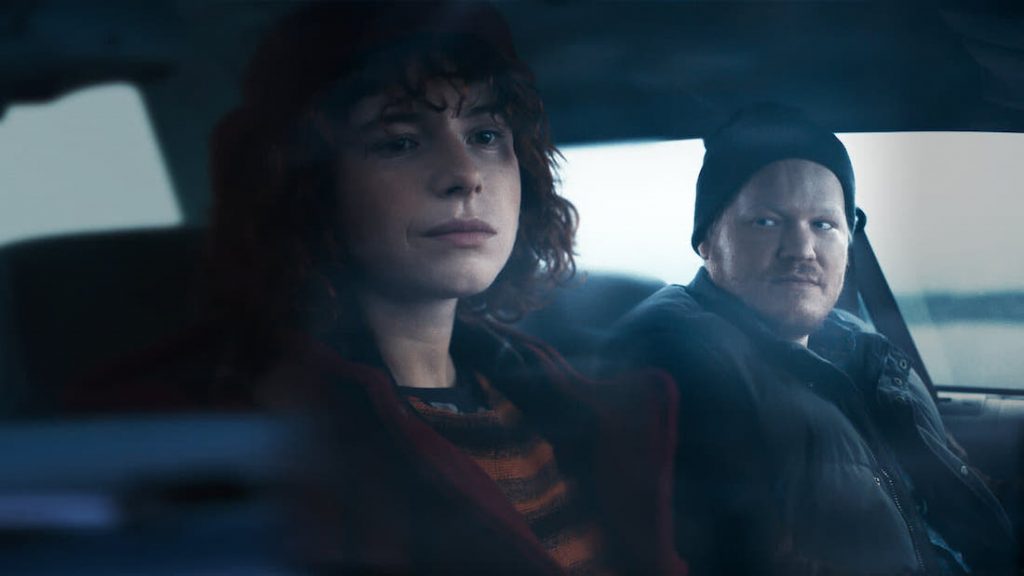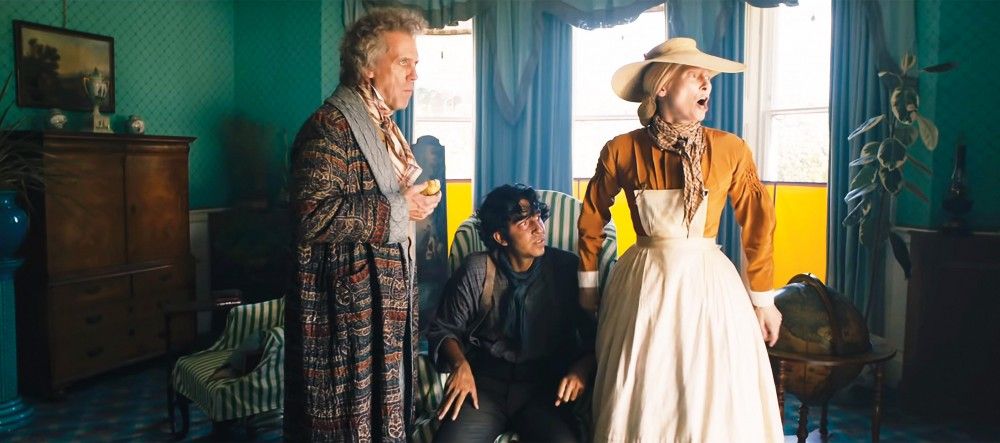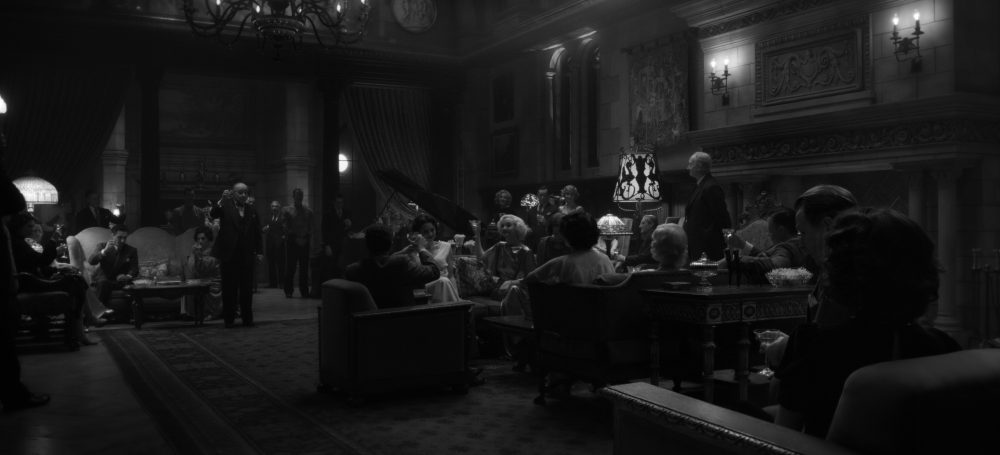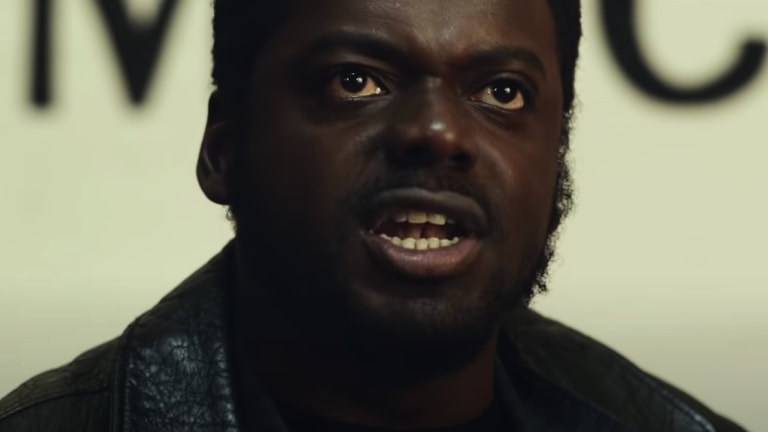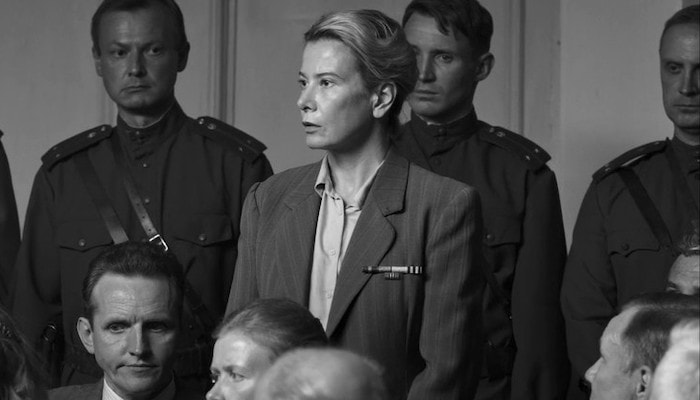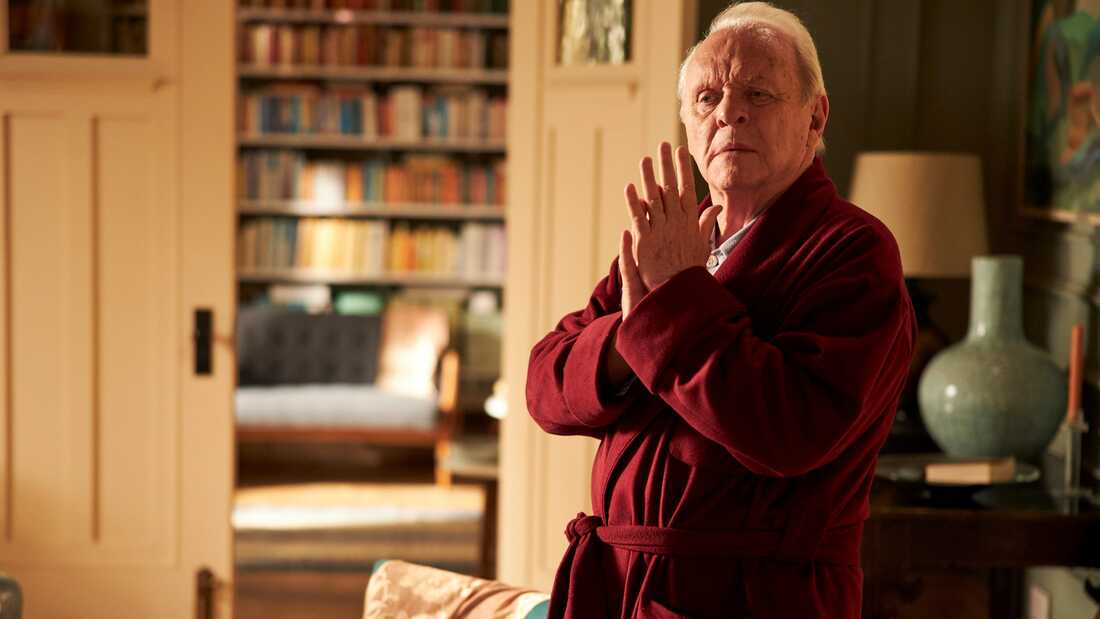|
Hello, all, and welcome back to The Friendly Film Fan! As we are exactly one week and one day away from the 2021 Oscars, the time has now come to announce, at last, the winner for the 5th Annual Fisher Awards! These awards have been a long time coming and have been carefully considered and poured over for weeks on end, constantly pondered and meticulously analyzed, in order to select what I feel is the best representation of nominees and winners for each individual category. For a more detailed explanation of how the categories are crafted and nominees are selected, please go ahead and take a look at my initial piece on the 2021 Fisher Award Nominees here. And now, without wasting any more of your time, let’s get into it. Here are you winners (marked alongside their fellow nominees) for the 5th Annual Fisher Awards. Best Sound Design:
The category of Best Sound Design can often be a contentious arena in awards shows, but sometimes a film will come along that makes the crowning all the easier simply by virtue of how prominently its sound stands out among the pack. This year, that film is Sound of Metal, in which the sound is not only the most powerful element of the film, but the key ingredient to making every part of the story work. Its absence is excruciating for Ruben, its presence only barely registered until it’s gone, and while Sound of Metal may be the obvious choice, in this category, what other choice could there be? Best Visual Effects:
All of these films have phenomenal visual effects. The Invisible Man makes the titular character practical and terrifying. Soul’s animation and visual effects in lighting are second-to-none in terms of pure creation. Welcome to Chechnya’s VFX are the rare example of visual effects with a purpose beyond serving the film that they’re in, and though the Visual Effects Society has handed their award to The Midnight Sky, I have selected Tenet as the winner here for how seamlessly it weaves visual effects into both its action and non-action sequences. Some visual effects are obvious and impressive, but so often it’s the more subtle effects – the ones the audience doesn’t even notice – that are the most effective in their use. Tenet, according to director Christopher Nolan, may have less than 200 VFX shots total, but every one it does have is as seamless and invisible as if there are no VFX at all. Best Screenplay:
There were any number of great screenplays this year, from the deep-reaching power of Soul to the boldness of Promising Young Woman to the speechifying and performance-driven monologues of Judas and the Black Messiah, and normally an original screenplay would be primed to take this award at The Fishers. However, this year, the only adapted screenplay in the category – Charlie Kaufmann’s sublime work on i’m thinking of ending things – is declared the champion. Based on the novel of the same name by Ian Reid, i’m thinking of ending things is a ridiculously difficult book to adapt without giving away the game too early on, and to his endless credit, Kaufmann doesn’t use the twist of the narrative as a “gotcha” moment for the audience like so many other writers or directors would be tempted to do, but rather as a way of exploring the personal, of extrapolating the ideas and themes presented by the film itself. It’s a remarkable adaptation in movie form, and by far the most fascinating script of these to study over and over again. Best Original Score:
The Oscars will almost certainly give the win to Soul, and will be a well-deserved win. The Trent Reznor & Atticus Ross score is absolutely one of the very best of the entire year, and I will have no issue with it taking home the golden statue. For me, though, the Best Original Score is not only about what the most dynamic, memorable, or effective music is in the moment of watching the film, but what most effectively evokes the memory of watching it after the fact. What pieces of music most effectively communicate the themes, the tone, and the overall mood of the piece to which they are attached; in other words, do the vibes match? For both Tenet and Minari, this is true, but the more evocative of the two I believe is the latter, composed by Emile Mosseri. Mosseri’s work on Minari, while it plays with many different variations on its main theme, is largely consistent, and evokes exactly the tone that Minari is hoping to strike in its narrative and presentation. All of the scores here are great works by composers more than capable of creating masterpieces, but it’s Emile Mosseri’s work here that has stood out to me, especially lately, above the rest. Best Character Design (Costumes + Makeup & Hairstyling):
Unfairly shut out of the 2021 Oscar nominations, The Personal History of David Copperfield is a delightful film full of bright performances and stellar writing, but its shiniest element by far is the design work through every period costume present in the film, which, when combined with the makeup work, makes every character a distinct, memorable portrait all their own. Rather than simply use the period costumes and makeup as a way to demonstrate the era, the designers put each of their own personal flecks of design into each character’s look, and weren’t afraid to include some things that – while not entirely period accurate all the way around – spoke to their individual personalities in taste. Plus, they made us believe that Morfydd Clark was two different characters in the same movie, and that is an achievement worth celebrating. Best Production Design:
When discussing the category of production design, we’re talking about much more than just the characters or individual elements; we’re talking about the whole of the picture. How do the sets look, are the locations fitting, how are the costumes, the hair, the makeup, what does the full image bring to mind or evoke in the viewer? These are all things to consider, but no film quite captured every design element’s lighting-in-a-bottle aesthetic like Mank, which famously recreated several iconic Hollywood landmarks, including the famous Hurst Castle in which the film contains its final sequence. Everything about Mank evokes the late 30s/early 40s era of Hollywood moviemaking, and nowhere is that more prominent than the design work. Whether or not Mank is a film worthy of the number of Oscar nominations it has is up for debate, but no one can deny in truth that it is a technical achievement beyond reproach. Best Film Editing:
Film Editing may be the most important job on any movie – whatever the director and DP have shot, whatever script was rehearsed and performed, whatever other live elements are used to make a movie, the edit bay is where the movie itself lives and dies. A good film can be made great by the edit, and a mediocre one can be brought even lower, but nothing lives or dies by the edit like documentaries. A great documentary editing job is the difference between something general audiences dismiss as boring or uninteresting out of hand and an absolutely absorbing work of filmmaking worthy of its own picture award. And no movie this year was more impressively edited than Time, Garrett Bradley’s incredibly moving portrait of one woman’s 20-year wait for her husband to be released from prison. Beyond being attached to a brilliant documentary, the edit of Time brings 20 years into a sharp, 80-minute focus, and to be able to preserve every theme, every important moment, and every ounce of meaning within such a short window to tell this story is nothing short of miraculous. Best Cinematography:
Another one of these awards that may seem obvious, but is nonetheless deserved, Joshua James Richards’ work on the gorgeous Nomadland is second-to-none. Richards’ camera conjures some stunning images as Fern journeys across the American heartland, absolutely, but so often it also captures the loneliness, the heartache, the isolation of having to journey out on one’s own and find a new way to live in the face of total economic collapse. It’s also not afraid to sit on the uncomfortable moments, to get up close and personal in the most intimate times of Fern’s journey, no matter how awkward or heartbreaking they might be. This is a movie with a point to make, but it refuses to make it until the viewer accepts its invitation to conversation, and that speaks not only to how well it is directed, but to how perfectly and powerfully it’s shot. Best Supporting Actress:
I poured over this category for such a long time, all the way up to a mere hour before I began writing this piece, but at the end of the day, as much as I loved Seyfried in Mank, and as essential as Bakalova is to making Borat 2 work, there’s a certain power and charm that Yuh-Jung Youn has over the narrative of Minari that is entirely undeniable. Of course, the film itself has a lot of things going for it, and Alan Kim as well has much to do with the film’s soul, but before Yuh-Jung Youn shows up, that soul is only half-formed, and it’s his connection to his grandmother in the film that allows the story to have its most powerful moments, forging a path for Youn not only to become one of the most endearing characters of 2021, but one of the most exciting Korean actresses to break into the mainstream of American filmmaking as well. Best Supporting Actor:
The Oscars often like to give this award to the loudest, most boisterous performance of the year, and this year, the Fishers happen to agree that it’s also the best supporting performance by an actor in 2020. Every nominee on this list does fantastic work, particularly Paul Raci as a deaf tutor in Sound of Metal, but the titular Black Messiah of Judas can only come to life in a performance as powerful, confident, and undeniable as that of Daniel Kaluuya. His performance as Chicago Black Panther Party Chairman Fred Hampton is nothing short of astounding, and nowhere is it better served than in the scene where he gives his big speech (you know the one I’m referring to). Kaluuya is a phenomenal actor going all the way back to the very first season of Black Mirror – later breaking out as a major movie star in Get Out – but this may very well be the best performance he’s ever given, and he’s got nowhere to go from here but up. Best Actress:
When I first sat down to watch the Russian entry to the Best International Feature race, there was no way I could have predicted that it would end up being one of my top 10 movies of 2020, let alone that it would travel all the way up to #7. That placement though, apart from stellar design, cinematography, and storytelling, is largely due to the fearless, perfect performance of lead actress Yuliya Vyotskaya, who runs the emotional gambit from reckless to measured to terrified to heartbroken to relieved all within the course of about two hours, and sometimes even playing all five at different levels, even in the same scene. It’s a performance one has to see to believe, and measured against every other performance by a leading actress this year, nothing else comes anywhere remotely close to achieving this level of becoming the character. It can be difficult to describe the mastery of this performance to those who have not seen the film, but if you wish to absolutely blown away by Vyotskaya, as I was, do seek Dear Comrades! out. Best Actor:
No doubt the Oscars will most likely give this award to the late Chadwick Boseman, and much like Soul’s Best Original Score win, it will be well-deserved. Boseman was an incredibly gifted performer, and his work in Ma Rainey is a career-best, a bittersweet note on a career that was only becoming more interesting the more projects he did. Having said that, Anthony Hopkins’ performance in The Father is simply too undeniable not to award. Not only is it Hopkins’ best since The Silence of the Lambs all the way back in 1991, it’s the single best performance of 2020, full stop. Hopkins transforms in an entirely different way here, without the use of prosthetics of any kind, entirely disappearing into a man who himself is also disappearing and unable to stop it from happening. The final 5 minutes of the film are the most devastating of the entire year, and I still cannot watch them without weeping. Hopkins has been a phenomenal actor for a very long time, but this may be the first time since Lambs where even though I knew it was his face I was watching, his voice I was hearing, I didn’t see or hear Hopkins at all. Best Director:
Directing is a tough job, especially on feature films, and so often it’s only the directors of narrative fiction films that are recognized for their work, but directing a documentary can be just as difficult, if not more. Capturing the life of one of the bravest journalists who ever lived, or in our winner’s case, capturing a distinct moment in the American political consciousness and releasing the footage of that moment mere months before that consciousness reaches its peak is an incredible achievement, and that’s why this award is going to Amanda McBaine and Jesse Moss for their incredible work on the A24 documentary Boys State. McBaine and Moss turned this documentary about a mock political election in Texas over the course of a single week into one of the most engaging, thrilling, and ultimately hopeful films of 2020, managing to capture almost every element of American politics and the state of it right now in just under two hours. That could not have happened without two directors who knew how to bounce off of each other, knew what they were looking for, and knew what they were doing in putting all of it together. It’s the most confident directing job I’ve seen this year outside of narrative fiction filmmaking, and it’s the one I’ve chosen to win the Fisher for Directing in 2021. And finally… Best Picture:
So often in doing awards shows like these, especially if they’re run by individuals, the winning film will go to the favorite of whoever is running the show, and there’s nothing wrong with that. If one genuinely thinks that whatever their #1 movie of the year is is also the absolute best the year had to offer, that’s great and should be celebrated. However, with Best Picture, I feel that for this show, there’s a greater responsibility. Best Picture at the Fishers shouldn’t just be about what my favorite movie of the year was (Nomadland, for those wondering), but should also represent something holistically about where movies are meant to be going, or how far they’ve come over the course of their history, or in the Oscars case, what the voting body hopes to say to the world by the movies it chooses to award with the grand prize. Obviously, as it’s just me, there is no “voting body” for The Fishers, but that is the approach that I’ve come to take as most effective in choosing the winner here. Minari is not only a representation of what the American dream is, how difficult that is to achieve, and what exactly it’s supposed to mean, but also demonstrated a confident, holistic approach to filmmaking and storytelling. Everything in Minari matters, and it’s one of the few films up for a lot of awards from 2020 that ends not just on a hopeful note, but an unambiguously hopeful note. Lee Isaac Chung isn’t the star of Minari, nor are Steven Yeun, Yeri Han, Alan Kim, Noel Cho, or Yuh-Jung Youn. The star of Minari is the story, and what it means to the people who love it. And that is why it’s my pick to win the Fisher Award for Best Picture of 2020. And those are you winners for the 5th Annual Fisher Awards! It has been a great year for movies despite everything the industry has been through, and I have loved getting to celebrate the year in film with you guys over the course of the past couple of months. Now, let’s look on towards the Oscars. My final predictions in all categories will be up either tomorrow or Monday. See you then!
- The Friendly Film Fan
0 Comments
Leave a Reply. |
AuthorFilm critic in my free time. Film enthusiast in my down time. Categories
All
|

